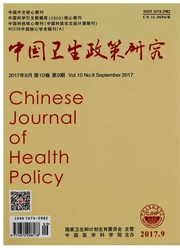

 中文摘要:
中文摘要:
首先论述人类个体寿命与健康不仅与遗传内因有关,更主要受社会行为与环境等外因的影响,以及为何研究社会行为、环境和遗传因素的交互作用可提高老龄健康干预方案效益。其次,从三个方面介绍和讨论国际上这一领域的新进展:高度重视与加强老龄健康跨自然与社会科学研究;大力推进在已有老龄健康跟踪调查数据库中加入被访者相关基因分型数据;大力推行跨学科研究数据资源共享。第三,分析了老龄健康跨学科研究设计的策略。最后,建议有关部门重视与支持老龄健康跨学科研究,尽快建立我国老龄健康协同创新数据库和资源共享跨学科研究平台,从而大大提高相关跟踪调查数据和遗传样本的科学价值,促进预防医学和社会科学综合交叉研究深化与发展,为有效提高疾病预防和健康干预效益奠定科学基础。
 英文摘要:
英文摘要:
This review article first discusses that individuals' life span and health are not only associated with genetics, but also mainly affected by social, behavioral, and environmental factors; and why studying interactions among social, behavioral, environmental, and genetic factors may be useful to increase efficiency of healthy aging intervention programs. In the second part, I introduce and discuss the main international progress in this field from three aspects: Strongly strengthening the interdisciplinary research on healthy aging; Strongly promoting integration of the phenotypic data collected from longitudinal surveys with the interviewees' genotypic data; Strongly promoting resources sharing of the de-identified phenotypic and genotypic data among researchers. The third part of this article de- scribes the healthy aging research design strategy. Finally, I suggest that China needs to pay more attention to interdisciplinary research on healthy aging, to develop the healthy aging related phenotypic and genotypic database and the data resources-sharing mechanism. Such investments would not only largely strengthen the scientific research but also significantly increase the efficiency of the programs for chronic disease prevention and health intervention.
 同期刊论文项目
同期刊论文项目
 同项目期刊论文
同项目期刊论文
 期刊信息
期刊信息
